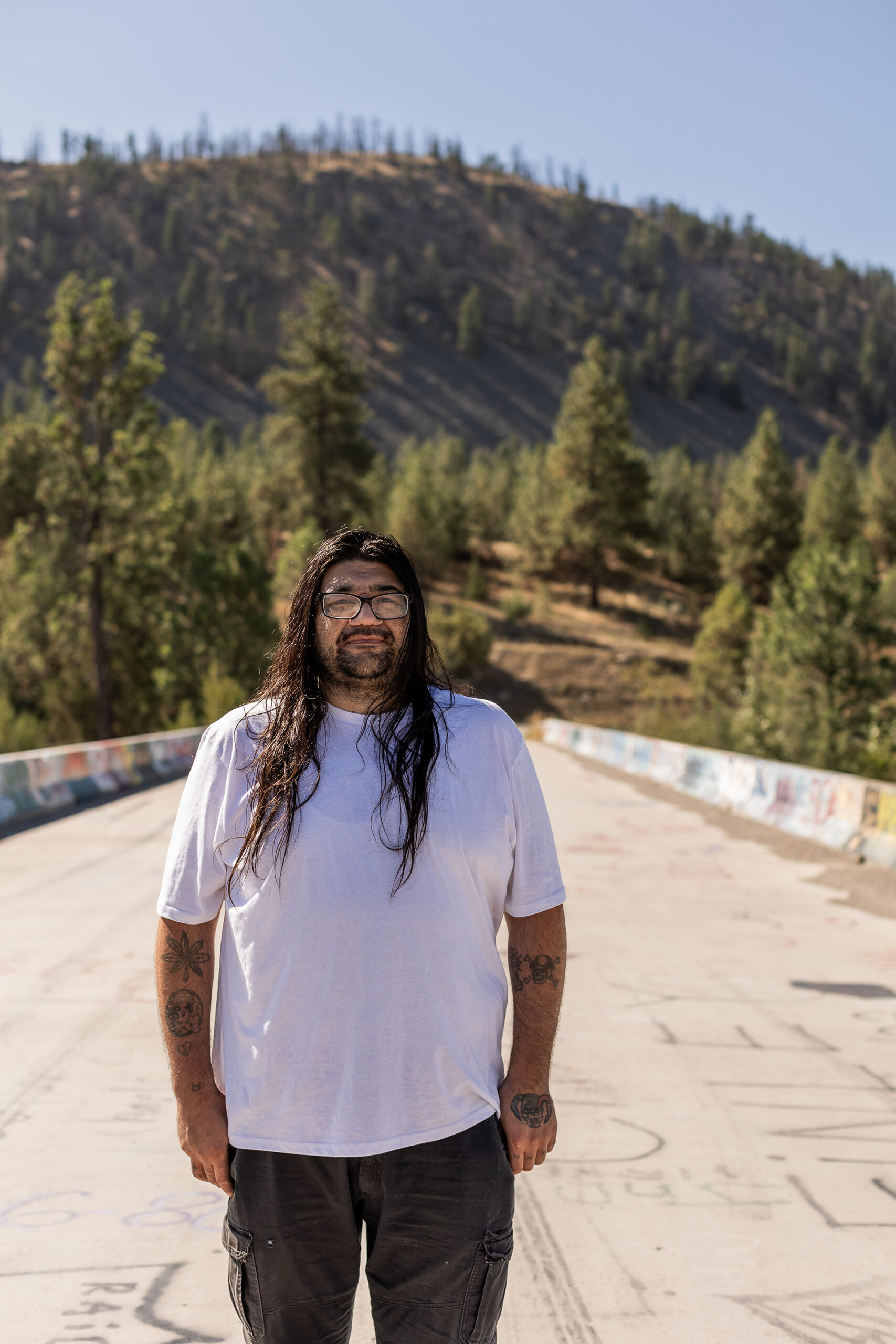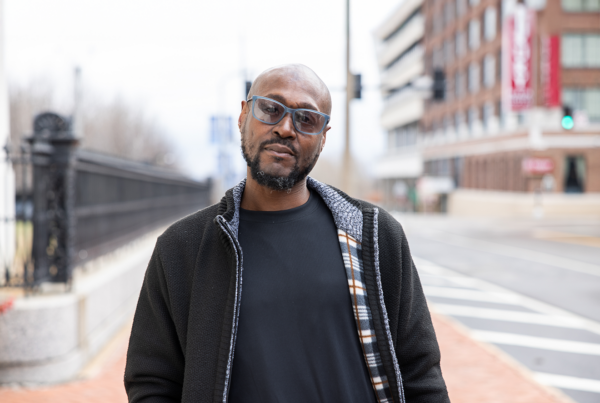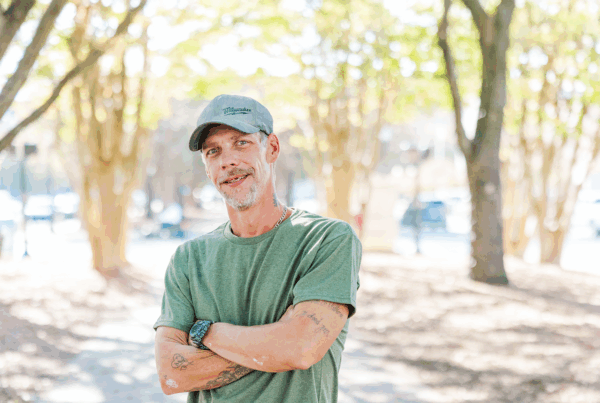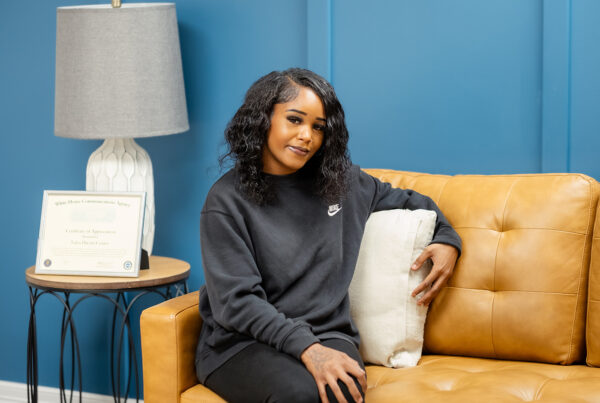As a tribal member of the Flathead Indian Reservation in Western Montana, Amos feels proud to have been born and raised in his ancestral homeland. Vibrant forests, rivers, and lakes surround the area, which is home to the Bitterroot Salish, Kootenai and Pend d’Oreille Tribes.
Like many people in his community, Amos, 39, prefers nature’s quiet moments over bustling city life. “As Native Americans, we hold onto the old ways of living,” he said. “Living in nature is what we value.”
In many ways, embracing an outdoor lifestyle means much more to Amos than others might think: nature is his refuge.
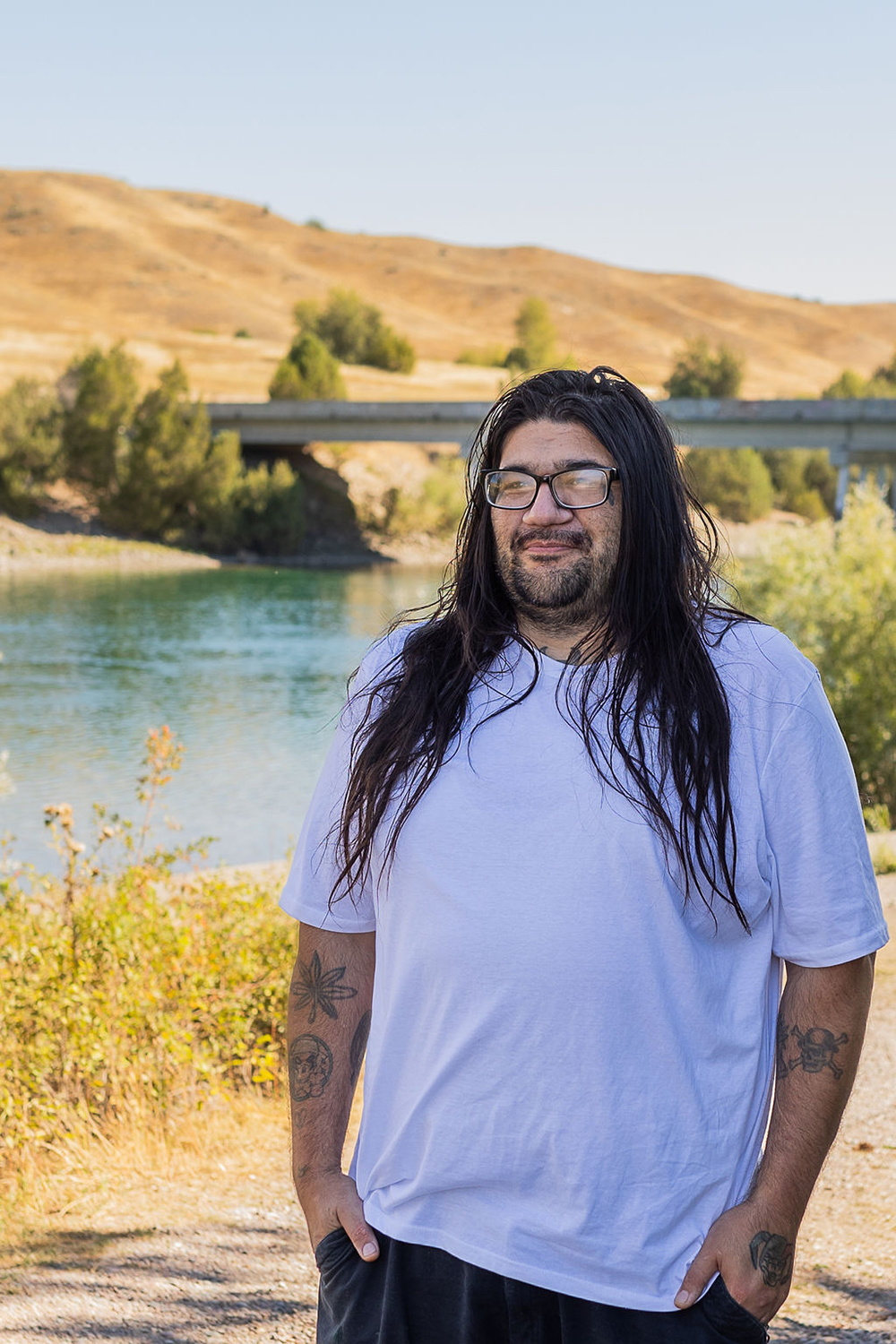 Growing up, he was taller than most kids, which made him an easy target for bullying. Noticing that Amos had become withdrawn and irritable, his parents sent him to an in-patient behavioral treatment facility at the advice of tribal elders. Amos was separated from his parents for one year. He was only 14-years-old.
Growing up, he was taller than most kids, which made him an easy target for bullying. Noticing that Amos had become withdrawn and irritable, his parents sent him to an in-patient behavioral treatment facility at the advice of tribal elders. Amos was separated from his parents for one year. He was only 14-years-old.
“Even though I was a kid, they restrained me on the bed. They had six grown men put me in restraints. Sometimes they used tranquilizers on me.”
“Even though I was a kid, they restrained me on the bed,” Amos recalled. “They had six grown men put me in restraints. Sometimes they used tranquilizers on me.”
This was the first of many traumatic events that Amos experienced at a residential treatment facility. In the years that followed, he was sent back several more times. Each time Amos returned home, his experiences at the residential treatment facility only added to the sense of isolation and harm he continued to experience in school.
Across the United States, Black, Latino, and Indigenous children, such as Amos, are overrepresented in residential treatment centers as compared to their white peers.
For many children, including Amos, the ripple effects from being placed in residential treatment extends beyond their childhood. Youth who attend such in-patient programs are more likely to be arrested and accused of crimes in the future. This so-called ‘treatment-to-prison pipeline’ can have devastating consequences for children later in their adulthood.
The first time Amos saw the inside of a courtroom was when he was 12 years-old. He was accused of throwing an egg at his school principal’s house. “They handcuffed me and put me in the back of the cop car and took me to the reservation jail,” Amos recalled. “I was with full-grown adults in the tribal jail.”
Because Amos and his family could not afford bail, he was trapped behind bars for the entire weekend. “There wasn’t any other option but for me to plead guilty,” he said.
When supportive services and treatment alternatives are scarce in Indigenous and other communities of color, arrest and jail can be a default response. Like Amos, those incarcerated can wind up saddled with criminal convictions that will follow them for the remainder of their lives.
“To dismantle the mental health to incarceration pipeline, there needs to be a public health approach that addresses root causes of mental health challenges of youth,” the authors of this 2017 study in the National Academies of Sciences, Engineering, and Medicine said. “This includes housing insecurity, food insecurity, trauma, and early detection.”
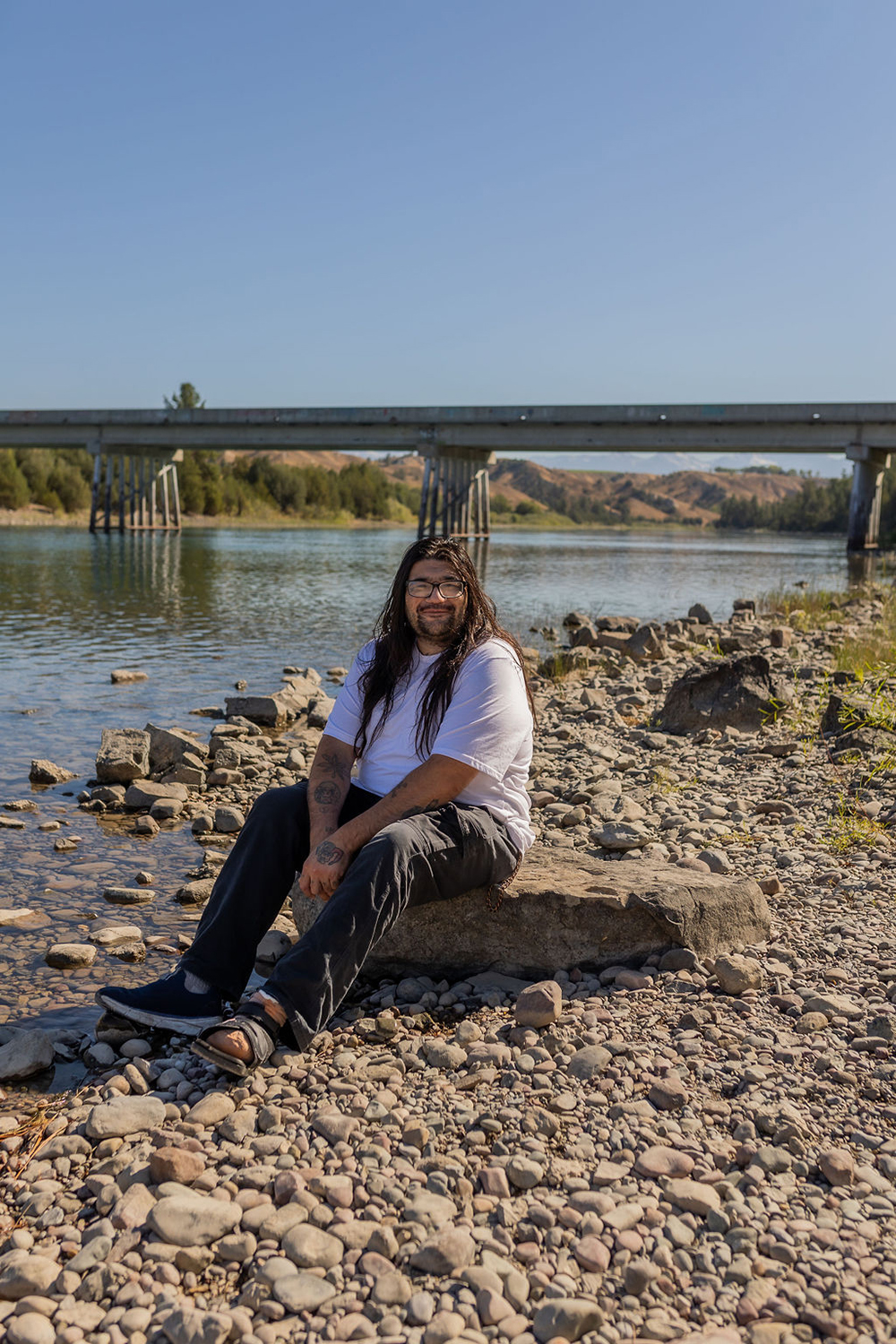 Family and friends describe Amos as a gentle giant. At 6’2”, he wears his heart on his sleeve, and has a close relationship with his parents. “We are taught as Native Americans to treat people kindly,” he said.
Family and friends describe Amos as a gentle giant. At 6’2”, he wears his heart on his sleeve, and has a close relationship with his parents. “We are taught as Native Americans to treat people kindly,” he said.
But despite his best intentions, Amos still longs to feel seen and valued. As an adult, he has struggled to form attachments. “I’m cautious of people. I don’t like getting close to many people,” he said. “That’s what I took away from the people I met at the mental health facilities. They said, ‘My job is done with you, goodbye.’”
Amos was recently placed behind bars again after a dispute with his parents. His bail was set at $1,000. When Riley Pavelich, The Bail Project staff member on the Flathead Reservation, learned that Amos was being held in jail because he didn’t have money to pay in exchange for his release, she immediately wanted to help. The Bail Project paid for his bail and connected him to supportive services, such as transportation assistance and court reminders.
Riley told Amos she understood his frustrations. “I explained that I agreed jail was not an appropriate place for him to be,” she said. Had The Bail Project not intervened, Amos would have spent much longer in jail, even though he was presumed innocent and still waiting for his day in court.
Amos doesn’t blame his parents for the events that transpired. Life hasn’t been easy on them either. Like many tribal members, their resilience is a direct response to the destabilizing effects that colonization and displacement plays in the family history of Native Americans.
“When they were kids, my parents were sent to boarding schools,” Amos said. “My mom was placed in foster care. The people there harmed her.”
On tribal lands across the country, there are higher rates of mental illness, addiction, poverty, and unemployment – which are often collectively referred to as “social determinants of health.” When there is a higher incidence of these problematic social conditions, community health declines, and crime is often a symptom.
Many consider the social conditions experienced by families living on tribal lands to be a legacy of the systematic oppression experienced by Native people, worsened by government disinvestment in robust supportive services to address unmet needs.
Amos said he also places blame on the criminal justice system.
“One thing the law will not do is apologize. The system criminalizes people in poverty. I know a lot of Native people wrongfully arrested.”
“One thing the law will not do is apologize,” Amos said. “The system criminalizes people in poverty. I know a lot of Native people wrongfully arrested.”
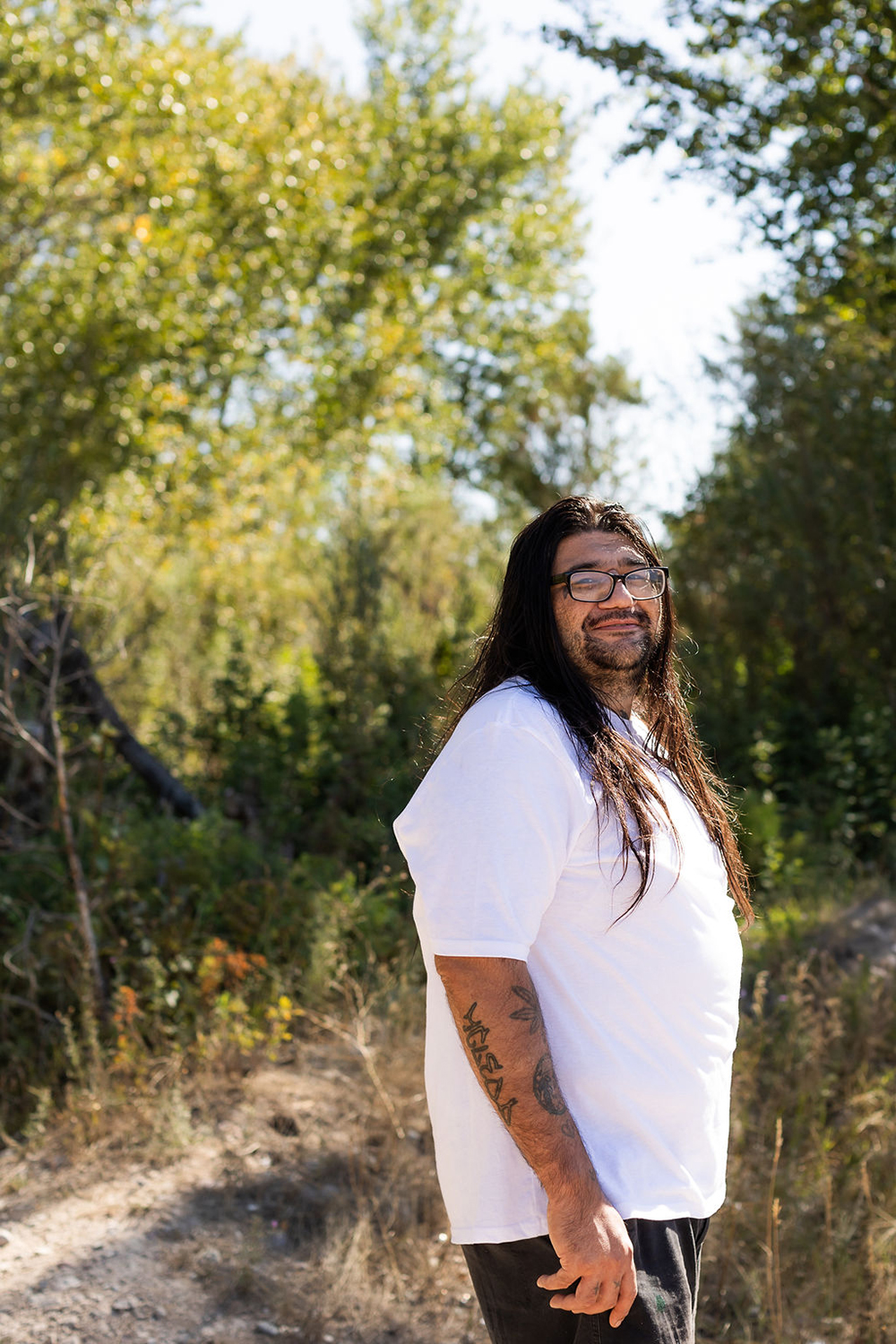 But with nature as his sanctuary, Amos has learned how to overcome moments of immense hardship. Anytime a cool wind hits his back or the scent of fresh pine strikes his nose, all the tension in his body evaporates. “Being in nature makes me feel safe,” Amos said. “The anxiety in my body goes down as soon as I’m in nature.”
But with nature as his sanctuary, Amos has learned how to overcome moments of immense hardship. Anytime a cool wind hits his back or the scent of fresh pine strikes his nose, all the tension in his body evaporates. “Being in nature makes me feel safe,” Amos said. “The anxiety in my body goes down as soon as I’m in nature.”
Thank you for reading. The Bail Project is a 501(c)(3) nonprofit organization that is only able to provide direct services and sustain systems change work through donations from people like you. If you found value in this article, please consider supporting our work today.







